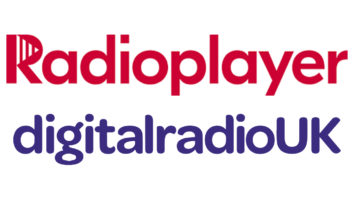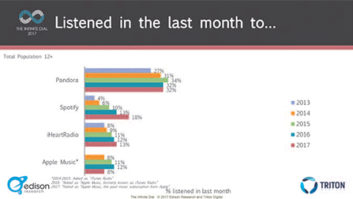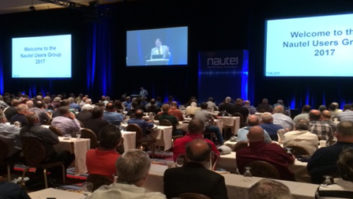The radio industry will undergo a complete financial restructuring in the next 12 to 24 months. It has already begun. A massive amount of debt will be converted to equity and/or written off. Yet there will be winners and losers. A lot is at stake for radio’s employees, lenders, investors and suppliers.
Much like the early 1990s, “workout” is now a prominent term in the broadcasting industry vernacular. A workout refers to a non-performing loan that has been moved into a lender’s “workout” department for collection.
The process is usually resolved in one of two ways: 1) the loan is restructured under more lenient terms, or 2) assets are sold to repay the outstanding debt. As you might suspect, borrowers and lenders have very different perspectives of the workout process.
Broadcasters
The broadcaster wants to restructure the loan(s) on terms that allow him to pay back the obligation from the business’ free cash flow. Generally, they want to buy time. This often means deferred payment terms, a lower interest rate, debt forgiveness, equity infusion and possibly asset sales. An alternative (but a difficult one when credit is “frozen” as it is now) is to simply refinance the loan with a new lender.

George Reed The broadcaster takes the position that the current problems are a “bump in the road,” and given time, effort and flexibility on the part of the lender, everything will work out just fine.
If the lender refuses to negotiate acceptable restructured terms, the war escalates. A Chapter 11 bankruptcy filing is in the broadcaster’s arsenal to stave off foreclosure (at least temporarily).
Lenders
Lenders simply want their money back. And they don’t much care how it happens. Ideally, they would like to see the borrower/broadcaster refinance their debt with a new institution. Failing that, they want the assets sold ó immediately. If the broadcaster refuses to cooperate (in their view), the lender might take steps to have a receiver appointed, charging the receiver to liquidate the company.
If the lender believes that the problems are temporary, they may agree to restructure the note, generally collecting fees for the restructure agreement, and usually with provisions that they will be made “whole,” perhaps getting additional security.
Lenders often (but not always) want to avoid the bankruptcy court. At times, they can negotiate a forbearance agreement with the borrower to agree to allow a receiver to be appointed, perhaps with the broadcaster’s agreement as to who the receiver will be.
I believe that broadcast companies will be divided into two distinct camps by their lenders: 1) Good operators with bad balance sheets; 2) Bad operators with bad balance sheets.
Fortunately, there are a few operators with good balance sheets, but very few.
For good operators with bad balance sheets, excess debt will be converted to equity; remaining debt will be restructured with payment terms matching the companies’ ability to pay. Owners will keep a stake and management will keep their jobs and be incentivized to perform under the new arrangement.
For bad operators with bad balance sheets, lenders will adopt a “throw out the bums” mentality. Assets will be liquidated, or in some cases, sold to entrepreneurs (and financed by the lender) who know how to make the business work.
So who are the winners and losers?
Winners
- • Lenders who stay calm, carefully analyze their problems and possible solutions.
- • Existing broadcasters without a leverage problem, particularly if they want to grow their business.
- • Existing broadcasters who become proactive in dealing with their problems.
- • Entrepreneurs who know how to operate (and have been patiently waiting for a window to get in).
- • Attorneys and smart, experienced broadcast restructuring consultants.
- • Smart distressed debt buyers who pair up with entrepreneurial operators.
Losers
- • Over-leveraged and under-operated broadcasting companies.
- • Lenders who panic.
- • Investors who bought into the over-leveraged and under-operated broadcasting companies.
So much for the financial restructuring. How will we fix the business itself?
Chipping away
Radio was Facebook and Twitter before there was an Internet.
It connected. It was one-on-one between the DJ and his/her listener. It set the tone for a community’s entertainment and informed it of the day’s news. It introduced new music. It was Facebook. It was fun and exciting. The DJ was “My DJ.”
But radio lost its focus: “Just play the hits … do what’s safe.” “No one wants local news anymore; besides, it is too expensive.” “Let’s voice track the shift and save a few bucks; no one will notice.” “Flying the morning show to the movie premier (or awards show, or NASCAR race, or fill-in-the-blank) is too expensive.”
And if that weren’t enough, we ran too many spots. Way too many spots.
Little by little, we chipped away at the cherished, intimate connection with our listener. And then it was gone. We became jukeboxes. Satellite radio won a PR war that radio didn’t even know it was fighting, repositioning the entire radio medium as “old” and “over.” My own teenage daughters prefer their iPods; I bet that yours do too.
Radio is boring. It is time to reconnect with our listener, with our tribe.
Here are some suggestions to station operators (and their owners):
- • Bring back the stars. Find and hire talent; nurture them.
- • Take chances. Try something. If it doesn’t work, try something else.
- • Break rules. If a listener just wants more hits, she’ll get an iPod.
- • Use the social networks to inform the tribe that you have something new.
- • Get radio on all appliances. Have you seen the selection of radios at Target lately? Compare to the iPhone.
- • Get the kids involved again. Listeners and staffers. Are the “kids” on your air staff all in their 30s? Newsflash: they’re not kids!
Twenty years ago, every radio station broker knew 10 GMs working to own their own station. Today, those same GMs simply want to make it to retirement (if they haven’t already been fired). There is no “bench,” no farm team. We are living a brain drain, or more accurately, a leadership and creativity drain.
“What’s hard now is breaking the rules. What’s hard is finding the faith to become a heretic, to seek out an innovation and then, in the face of huge amounts of resistance, to lead a team and to push the innovation out the door into the world.” – Tribes, Seth Godin, 2008
Like it or not, the radio industry will restructure. The open question is whether our industry leaders will take this opportunity to remake the business and take us to a whole new level of relevancy.
George Reed is managing director at Media Services Group, a media brokerage and consulting firm. He owns and operates stations in Charlottesville, Va. (Monticello Media) and San Juan (MSG Radio). Write him at[email protected].











